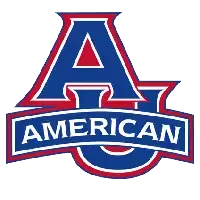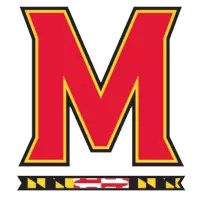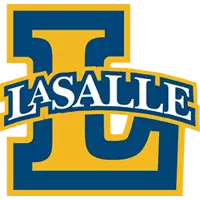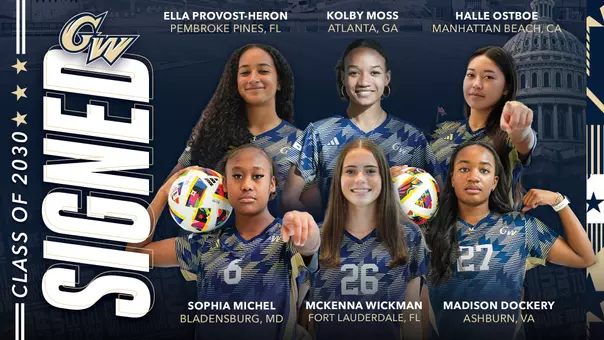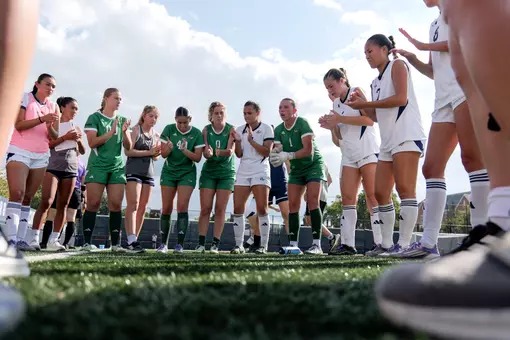George Washington University Athletics
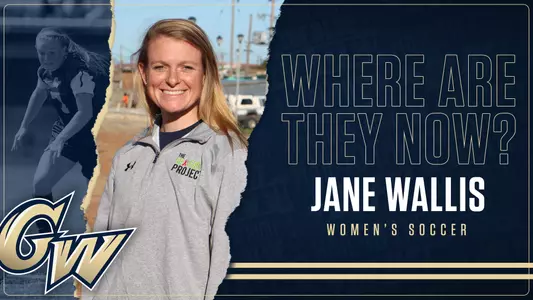
Where Are They Now? Jane Wallis
6/18/2020 10:00:00 AM | Women's Soccer, My GW: Celebrating our Stories
Women's soccer alumna makes a difference with The Grassroot Project
Jane Wallis' first stop after earning her master of public health degree from GW was Mapanza, Zambia, where her role with the Peace Corps made her the first American most locals had ever met.
During her life-changing stay in Africa, the GW women's soccer alumna helped organize the building and opening of an HIV treatment clinic in her rural village while also taking on the area's issues with malaria and child nutrition.
Looking back, Wallis said the bonds she forged over those two-plus challenging years living in a mud hut without electricity or running water with the nearest American a 20-mile bike ride away stoked her passion for making a difference closer to home.
"What I learned in Peace Corps was that I loved community, and I wanted to work with my community," said Wallis, a mainstay in the GW midfield from 2010-2013. "GW was the best experience of my life, D.C. is part of my community, and as much as I enjoyed global health and enjoyed the travel, I realized that there's so much work to be done in the U.S."
Over the past three years, Wallis has taken on that mission as Director of Programs at The Grassroot Project (TGP). The New York native has helped grow the non-profit that brings together Division I student-athletes from across the District to teach middle schoolers important health lessons through fun and games.
Boosted by her own experience as a TGP leader while studying at GW, Wallis has helped launch units in nutrition and mental health, to go along with its long-running sexual health course. The program reached more than 1,000 D.C. students during the 2019-20 school year thanks to more than 200 volunteers, including about 30 current Colonials, with the learning continuing virtually this spring in spite of the COVID-19 global pandemic.
"The more that I grow in my career, Grassroots gets to grow as well, so that's a really special feeling." Wallis said. "What's cool is I genuinely can say I have a job that changes every single day. As we build one thing, it's like 'OK, great we have to sustain that and now we're on to what's next.'"
On the field, Wallis made her mark in Buff and Blue, totaling 54 starts over her final three seasons and leading the Colonials with four goals as a senior in 2013.
Along the way, Wallis discovered her passion for public health through TGP, which was founded by former Georgetown rower Tyler Spencer in 2009.
At the suggestion of her then-head coach and now GW Director of Athletics Tanya Vogel, Wallis attended the second-ever TGP training open to GW student-athletes in the fall of 2010. She would become part of the organization's first student-athlete leadership team, helping shape its early path before it had full-time staff.
"My eyes were opened to the fact that we are not all on a level playing field," said Wallis, who was honored with the university's prestigiousGeorge Washington Award at commencement in 2014. "We have a huge inequity crisis in this country, and it was right here in D.C."
It was a class with Milken Institute School of Public Health professor Victor Barbeiro that convinced her to expand her horizons via the Peace Corps.
"I loved the way he spoke about people and culture," Wallis said. "It wasn't about 'Let me go serve and save the world.' It was 'We have things to learn from people no matter where they are, no matter what their education level is.'"
That attitude helped Wallis succeed amid the difficult conditions in Zambia.
Wallis adapted to speaking the local tribal language Chitonga, walking a mile to fresh water and washing clothes by hand with a lot of help. She learned how to farm and cook over an open fire and played soccer almost every day with the youngsters in the village.
Together, they were able to fundraise and build the six-room HIV treatment clinic that eliminated the need for thousands living with the disease in the community to walk to a neighboring village for daily care. The operation was still going strong when she visited last summer – following the same exact volunteer schedule she'd helped set up when it opened two years earlier.
"I made some of the best friends I'll ever have," Wallis said. "On paper, it shouldn't work. From the outside, you would think we're so different, but in reality, we were able to form these great friendships where we laughed and we cried together."
Wallis applied for a variety of non-profit jobs upon her return to D.C. in the fall of 2017, but her heart pulled her toward TGP.
Spencer had fundraised with an aim to expand programming and build more structure within the operation, and it's been a perfect fit.
TGP celebrated its 10-year anniversary with a gala in March 2019 and continues to grow and push forward.
The organization rolled out the nutrition unit for seventh graders in 2018 and added the mental health unit for eighth graders last fall. Wallis has led a collaborative process to build the new programs with years of research and data supplemented by feedback from the student-athletes based on their experiences in the classroom.
Ultimately, Wallis' hope is to help every volunteer get the most out of the experience and benefit as much as she did.
"It's a really cool journey," Wallis said. "I loved being able to do that myself, and now I get to continuously watch athletes do it. So, I feel like I have the best job ever."
This spring, TGP pivoted operations online with student-athletes rising to the challenge of creating videos and worksheets to teach lessons or visiting virtual sessions set up by the schools via Zoom. More than a dozen current Colonials took advantage of opportunities to help the organization during a difficult period for everyone.
"They were calling us like 'What can we do? How are we engaging kids? What's our game plan for this?'" Wallis said. "We were all like 'Wow, we have to figure this out quickly, not only because this is our job but also because we've got 200 athletes on the phone wanting to help.'"
In recent weeks, the conversation has turned to issues of social justice and the Black Lives Matter movement against violence and systemic racism towards the Black community. A group of current and former TGP volunteers recently took to the D.C. streets to make their voices heard, and last week, they held their first listening session for student-athletes to discuss issues related to racial inequality.
It's an important facet of an organization that was originally founded under the name Athletes United for Social Justice, Wallis said.
"I do think that's still inherent in who we are and what our mission is," Wallis said. "We are athletes united for the social causes of our time, and Grassroots has always been – when I was in school and it definitely is now – a place where athletes can come to figure out how they can take their passions and create impact around that."
Wallis continues to do whatever she can to support that progress to make a difference for student-athletes and people in the D.C. community who need the help. It's all the more special that she gets to do it in conjunction with her alma mater.
"I think I get the best of all the worlds," Wallis said. "I get to work in the city that I love. I get to stay connected with GW but continue to learn outside of GW.
"I get to continue to challenge GW to continue to work in the community in the most impactful, but I still get to be connected to this athletic department and to people like Tanya and John Square and some of these coaches that I've known since I was at school to continue to bring the best possible experience to student-athletes. I feel really grateful that I've gotten to spread my wings and grow from GW but also stay connected in a really important way."
During her life-changing stay in Africa, the GW women's soccer alumna helped organize the building and opening of an HIV treatment clinic in her rural village while also taking on the area's issues with malaria and child nutrition.
Looking back, Wallis said the bonds she forged over those two-plus challenging years living in a mud hut without electricity or running water with the nearest American a 20-mile bike ride away stoked her passion for making a difference closer to home.
"What I learned in Peace Corps was that I loved community, and I wanted to work with my community," said Wallis, a mainstay in the GW midfield from 2010-2013. "GW was the best experience of my life, D.C. is part of my community, and as much as I enjoyed global health and enjoyed the travel, I realized that there's so much work to be done in the U.S."
Over the past three years, Wallis has taken on that mission as Director of Programs at The Grassroot Project (TGP). The New York native has helped grow the non-profit that brings together Division I student-athletes from across the District to teach middle schoolers important health lessons through fun and games.
Boosted by her own experience as a TGP leader while studying at GW, Wallis has helped launch units in nutrition and mental health, to go along with its long-running sexual health course. The program reached more than 1,000 D.C. students during the 2019-20 school year thanks to more than 200 volunteers, including about 30 current Colonials, with the learning continuing virtually this spring in spite of the COVID-19 global pandemic.
"The more that I grow in my career, Grassroots gets to grow as well, so that's a really special feeling." Wallis said. "What's cool is I genuinely can say I have a job that changes every single day. As we build one thing, it's like 'OK, great we have to sustain that and now we're on to what's next.'"
On the field, Wallis made her mark in Buff and Blue, totaling 54 starts over her final three seasons and leading the Colonials with four goals as a senior in 2013.
Along the way, Wallis discovered her passion for public health through TGP, which was founded by former Georgetown rower Tyler Spencer in 2009.
At the suggestion of her then-head coach and now GW Director of Athletics Tanya Vogel, Wallis attended the second-ever TGP training open to GW student-athletes in the fall of 2010. She would become part of the organization's first student-athlete leadership team, helping shape its early path before it had full-time staff.
"My eyes were opened to the fact that we are not all on a level playing field," said Wallis, who was honored with the university's prestigious
It was a class with Milken Institute School of Public Health professor Victor Barbeiro that convinced her to expand her horizons via the Peace Corps.
"I loved the way he spoke about people and culture," Wallis said. "It wasn't about 'Let me go serve and save the world.' It was 'We have things to learn from people no matter where they are, no matter what their education level is.'"
That attitude helped Wallis succeed amid the difficult conditions in Zambia.
Wallis adapted to speaking the local tribal language Chitonga, walking a mile to fresh water and washing clothes by hand with a lot of help. She learned how to farm and cook over an open fire and played soccer almost every day with the youngsters in the village.
Together, they were able to fundraise and build the six-room HIV treatment clinic that eliminated the need for thousands living with the disease in the community to walk to a neighboring village for daily care. The operation was still going strong when she visited last summer – following the same exact volunteer schedule she'd helped set up when it opened two years earlier.
"I made some of the best friends I'll ever have," Wallis said. "On paper, it shouldn't work. From the outside, you would think we're so different, but in reality, we were able to form these great friendships where we laughed and we cried together."
Wallis applied for a variety of non-profit jobs upon her return to D.C. in the fall of 2017, but her heart pulled her toward TGP.
Spencer had fundraised with an aim to expand programming and build more structure within the operation, and it's been a perfect fit.
TGP celebrated its 10-year anniversary with a gala in March 2019 and continues to grow and push forward.
The organization rolled out the nutrition unit for seventh graders in 2018 and added the mental health unit for eighth graders last fall. Wallis has led a collaborative process to build the new programs with years of research and data supplemented by feedback from the student-athletes based on their experiences in the classroom.
Ultimately, Wallis' hope is to help every volunteer get the most out of the experience and benefit as much as she did.
"It's a really cool journey," Wallis said. "I loved being able to do that myself, and now I get to continuously watch athletes do it. So, I feel like I have the best job ever."
This spring, TGP pivoted operations online with student-athletes rising to the challenge of creating videos and worksheets to teach lessons or visiting virtual sessions set up by the schools via Zoom. More than a dozen current Colonials took advantage of opportunities to help the organization during a difficult period for everyone.
"They were calling us like 'What can we do? How are we engaging kids? What's our game plan for this?'" Wallis said. "We were all like 'Wow, we have to figure this out quickly, not only because this is our job but also because we've got 200 athletes on the phone wanting to help.'"
In recent weeks, the conversation has turned to issues of social justice and the Black Lives Matter movement against violence and systemic racism towards the Black community. A group of current and former TGP volunteers recently took to the D.C. streets to make their voices heard, and last week, they held their first listening session for student-athletes to discuss issues related to racial inequality.
It's an important facet of an organization that was originally founded under the name Athletes United for Social Justice, Wallis said.
"I do think that's still inherent in who we are and what our mission is," Wallis said. "We are athletes united for the social causes of our time, and Grassroots has always been – when I was in school and it definitely is now – a place where athletes can come to figure out how they can take their passions and create impact around that."
Wallis continues to do whatever she can to support that progress to make a difference for student-athletes and people in the D.C. community who need the help. It's all the more special that she gets to do it in conjunction with her alma mater.
"I think I get the best of all the worlds," Wallis said. "I get to work in the city that I love. I get to stay connected with GW but continue to learn outside of GW.
"I get to continue to challenge GW to continue to work in the community in the most impactful, but I still get to be connected to this athletic department and to people like Tanya and John Square and some of these coaches that I've known since I was at school to continue to bring the best possible experience to student-athletes. I feel really grateful that I've gotten to spread my wings and grow from GW but also stay connected in a really important way."
GW Volleyball Recap vs IU INDY (09/13/24)
Monday, September 16
Then & Now: Women's Soccer
Tuesday, July 19
GW Water Polo vs Johns Hopkins
Thursday, October 14
GW Water Polo vs Fordham
Thursday, October 14




